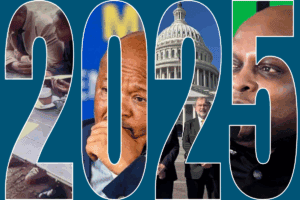The shift of Shivambu and Manyi from the EFF to MK highlights concerns about political opportunism and its impact on public trust.

The recent departure of Floyd Shivambu and Mzwanele Manyi from the EFF to join uMkhonto weSizwe (MK) party again brings to the fore the issue of political loyalty and commitment.
For many people, including myself, this move has reaffirmed our scepticism about the transformative power of politics.
It seems that instead of being a platform for change and progress, politics has become a stage for career-driven individuals more interested in personal gain than in serving the public.
When public figures frequently switch allegiances, it raises questions about their true motivations.
Are they genuinely committed to a particular set of principles and values, or are they simply chasing personal ambitions and opportunities?
ALSO READ: ‘This is not the way to say thank you’: Niehaus slams Manyi for EFF exit
This perpetual game of political musical chairs not only erodes public trust, but also undermines the credibility of the political system as a whole.
Citizens look to political leaders and parties to be the driving force for positive change in society.
However, when prominent figures jump ship for what appears to be purely self-serving reasons, it reinforces the notion that politics is more about individual careers than the collective well-being of the nation.
The issue runs deeper than just the actions of a few individuals. It reflects a broader problem within our political landscape – one where opportunism and self-interest often take precedence over public service.
This culture of political expediency undermines the potential for meaningful and sustainable progress, leaving many disillusioned with the entire system.
ALSO READ: A VIEW OF THE WEEK: Shivambu may have joined Zuma’s ANC fantasy long ago
It is time for a shift in our political culture – a shift away from self-serving careerism and towards a genuine commitment to the betterment of society.
Political leaders must demonstrate unwavering dedication to the ideals and causes they claim to represent, and prioritise the needs of the people over their own personal agendas.
Until such a shift occurs, many people, myself included, will view politics with scepticism and doubt its potential to be a catalyst for meaningful change.
The departure of Shivambu and Mzwanele Manyi from the EFF to the MK party is a stark reminder of the need for principled leadership in our political sphere. Only then can we begin to restore faith in the transformative power of politics.
The constant reshuffling of political allegiances also has a tangible impact on the public’s trust in the political process.
ALSO READ: Shivambu EFF exit ‘not in best interests of people’ − analyst [VIDEO]
When politicians frequently switch parties or form new ones, it creates a sense of instability and unpredictability.
Citizens wonder if their elected representatives are truly committed to their stated values and policies, or if they are simply opportunistic individuals seeking the best personal advantage.
Moreover, this trend of political migration can also contribute to a sense of disillusionment and apathy among the electorate.
When people witness prominent political figures seemingly prioritising their own careers over the needs of the community, it can lead to widespread disengagement from the political process.
This can have detrimental effects on a democracy, as active and informed citizen participation is vital for a robust and responsive political system.
ALSO READ: Floyd Shivambu may have seen MK as a ‘haven’ with VBS cloud hanging over him
It is clear that we need a new framework for political engagement – one rooted in integrity, accountability and a genuine commitment to serving the public good. It is not enough for politicians to pay lip service to these ideals; they must demonstrate them through consistent actions and choices.
Ultimately, the responsibility lies not only with the politicians but also with the electorate. We must demand higher standards of ethical conduct and principled leadership from those who seek to represent us.
We must hold our elected officials accountable for their decisions and ensure they remain true to the values and promises on which they were elected.
Then we can begin to shift the narrative around politics from one of cynicism and disillusionment to one of hope and possibility.
We can cultivate a political culture where public service is revered, and the common good takes precedence over individual ambition.
ALSO READ: Shivambu’s departure: A blow to Malema and the EFF
It is only through such a transformation that we can truly harness the potential of politics as a force for positive change.
- John is a communications practitioner and former journalist






